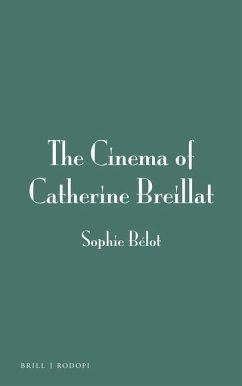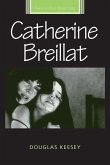In The Cinema of Catherine Breillat, Bélot offers a detailed analysis of Breillat's past and recent films. Breillat is one of the most internationally renowned French women filmmakers whose notoriety is built on her explicit representation of women's sexuality. Most of her films rely on a female protagonist's personal and intimate search of her self, characterised by her sexual journey.
Facing censorship and controversy, Breillat's films do not easily fit classification and place the viewer into an uncomfortable position. This study looks at Breillat as an independent cinema auteur entertaining a close relation with her films by exploring and positing women, from adolescence to adulthood, as sexual beings reflecting her films' identity emanating from Breillat's personal or intimate scenes.
Facing censorship and controversy, Breillat's films do not easily fit classification and place the viewer into an uncomfortable position. This study looks at Breillat as an independent cinema auteur entertaining a close relation with her films by exploring and positing women, from adolescence to adulthood, as sexual beings reflecting her films' identity emanating from Breillat's personal or intimate scenes.
"This is a sharp, engaging volume, offering a complex feminist introduction to the films of this uncompromising cineaste." - G. A. Foster, Choice, 55.6, February 2018.
"Sophie Be´lot's book is to be welcomed as another passionate engagement with Breillat, more in line with some of the best, partisan, French work, by Claire Clouzot and others. These French studies come in close to the director's auteur persona, responding to and defending Breillat's seductive, yet contestatory, ethos and visual style. [...] a lovely book that presents a vivid, engaged apprehension of its subject." - Emma Wilson, French Studies, 73.1, January 2019.
"Sophie Be´lot's book is to be welcomed as another passionate engagement with Breillat, more in line with some of the best, partisan, French work, by Claire Clouzot and others. These French studies come in close to the director's auteur persona, responding to and defending Breillat's seductive, yet contestatory, ethos and visual style. [...] a lovely book that presents a vivid, engaged apprehension of its subject." - Emma Wilson, French Studies, 73.1, January 2019.








